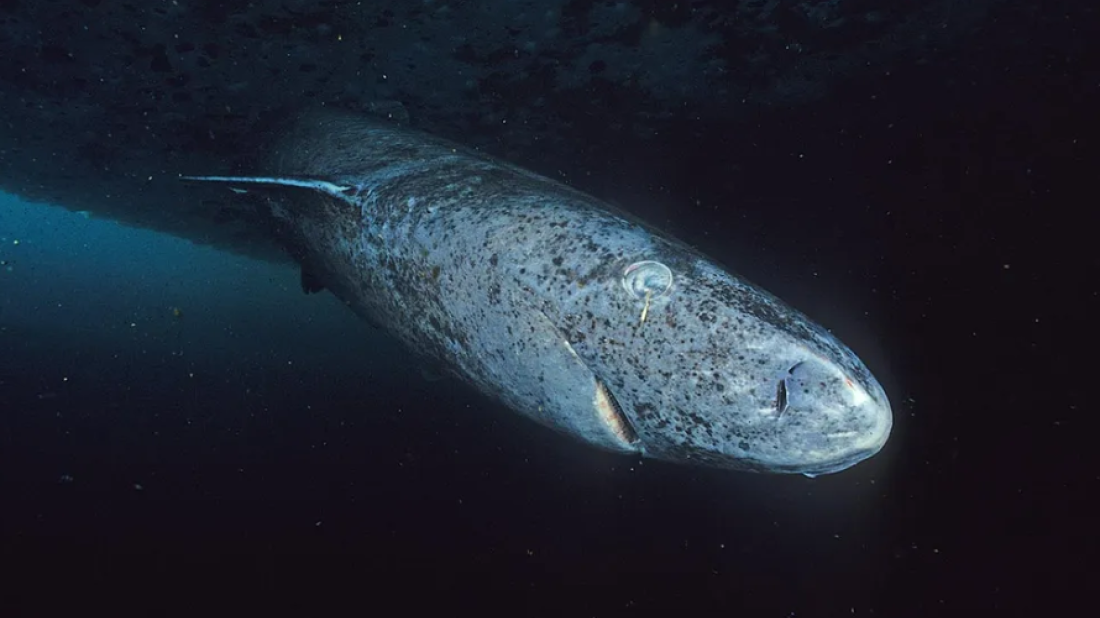Google AI boss calls for more study of potential AI threats
The chief executive of Google DeepMind, Demis Hassabis, has called for more urgent research into the potential dangers posed by artificial intelligenc...

New research on Greenland sharks reveals genetic traits linked to their 400-year lifespan and resistance to cancer. Multiple copies of genes related to immune function and DNA repair may hold key insights for human aging and health.
Greenland sharks, the mysterious giants of the North Atlantic and Arctic oceans, are known to be the longest-living vertebrates on Earth, with lifespans reaching up to 400 years. This remarkable longevity has puzzled scientists for years. While initially attributed to their cold habitat and slow movements, new research into the sharks' DNA is shedding light on the genetic secrets behind their extraordinary lifespans.
A recent study by researchers in Japan, who sequenced the genome of the Greenland shark, has revealed surprising genetic traits that could explain why these creatures don’t commonly develop cancer and why they age so slowly. The team discovered multiple copies of genes that affect the NF-κB signaling pathway, which is crucial for immune system function and regulating inflammation. When disrupted, this pathway allows harmful pathogens and tumor cells to thrive. A strong, functioning NF-κB pathway may be key to the shark’s impressive health and longevity.
Interestingly, Greenland sharks are not alone in this unique genetic feature. The red sea urchin, another long-living marine species, also has multiple copies of genes related to this pathway, supporting the idea that enhanced immune system regulation contributes to extended lifespans in marine animals.
Further research on the Greenland shark's genome also identified additional clues to their remarkable age. Scientists found multiple copies of 81 genes involved in DNA repair, including an altered version of the TP53 gene, which plays a critical role in suppressing tumors and repairing DNA damage. This mutation may also contribute to the shark’s extraordinary ability to fend off cancer and age more slowly.
Although humans will likely never reach the Greenland shark's lifespan, the insights from studying these creatures may eventually benefit human medicine. Experts suggest that the genetic mechanisms found in Greenland sharks could lead to advancements in treatments that promote healthier aging, such as new pharmaceuticals or gene therapies. As João Pedro de Magalhães, a molecular biogerontologist at the University of Birmingham, noted, “These animals live longer than human beings, without the help of medicine, hospitals, or healthcare.”
The genetic findings on Greenland sharks suggest a fascinating link between immune response, inflammation, tumor suppression, and longevity. Shigeharu Kinoshita, a researcher at the University of Tokyo and co-author of the study, pointed out that the increase in genes involved in NF-κB signaling could be directly tied to the shark's ability to live so long. This opens up the possibility of future medical breakthroughs based on the shark's genetic secrets.
To explore this further, scientists plan to continue their research, examining not just the shark's genome but also its metabolism, heart function, behavior, and ecology. Some hope to compare the genetic makeup of the Greenland shark with other long-lived species, such as the bowhead whale, to uncover more about the biological mechanisms behind extreme longevity.
Understanding aging is a complex challenge, and while scientists do not yet have all the answers, the continued study of Greenland sharks could bring us closer to solving this puzzle, benefiting both human health and our understanding of life’s most enduring creatures.
Quentin Griffiths, co-founder of online fashion retailer ASOS, has died in Pattaya, Thailand, after falling from the 17th floor of a condominium on 9 February, Thai police confirmed.
Cubans are increasingly turning to solar power to keep businesses operating and basic household appliances running during prolonged electricity cuts, as fuel shortages make diesel generators and other temporary solutions more difficult and costly to maintain.
Ukraine’s National Paralympic Committee has announced it will boycott the opening ceremony of the Milano Cortina 2026 Paralympics in Verona on 6 March, citing the International Paralympic Committee’s decision to allow some Russian and Belarusian athletes to compete under their national flags.
Eric Dane, the actor best known for his roles in 'Grey’s Anatomy' and 'Euphoria', died on Thursday, at the age of 53 after a battle with amyotrophic lateral sclerosis (ALS). His family confirmed his death after what they described as a “courageous battle” with ALS.
An Austrian climber has been convicted of gross negligent manslaughter after his girlfriend died from hypothermia while climbing Austria’s highest peak, the Grossglockner, in January 2025.
The administration of U.S. President Donald Trump on Thursday (12 February) announced the repeal of a scientific finding that greenhouse gas emissions endanger human health, and eliminated federal tailpipe emissions standards for cars and trucks.
Tropical Cyclone Gezani has killed at least 31 people and left four others missing after tearing through eastern Madagascar, the government said on Wednesday, with the island nation’s second-largest city bearing the brunt of the destruction.
Rivers and reservoirs across Spain and Portugal were on the verge of overflowing on Wednesday as a new weather front pounded the Iberian peninsula, compounding damage from last week's Storm Kristin.
Morocco has evacuated more than 100,000 people from four provinces after heavy rainfall triggered flash floods across several northern regions, the Interior Ministry said on Wednesday.
Greenland registered its warmest January on record, sharpening concerns over how fast-rising Arctic temperatures are reshaping core parts of the island’s economy.
You can download the AnewZ application from Play Store and the App Store.

What is your opinion on this topic?
Leave the first comment